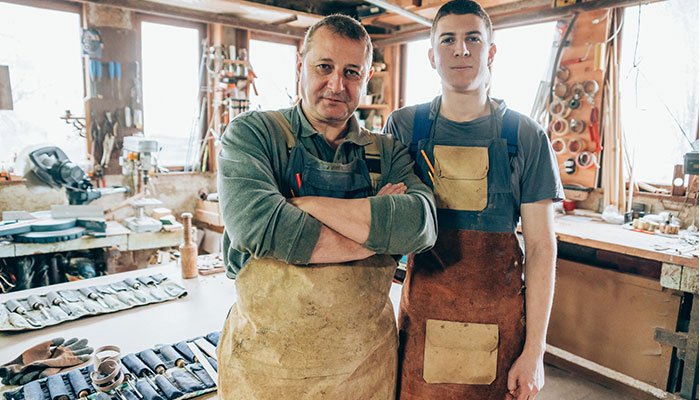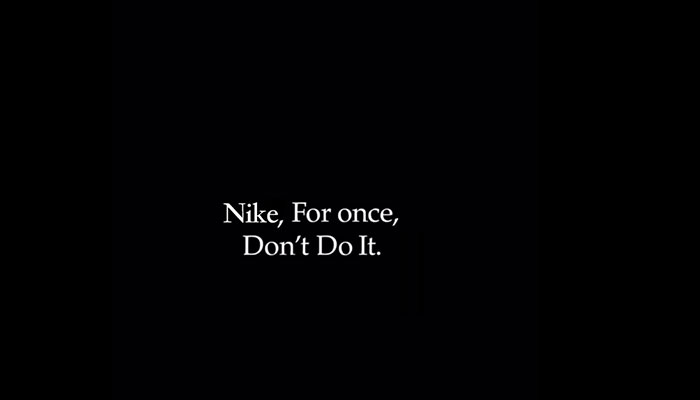As the catastrophic financial fallout from the coronavirus pandemic becomes more apparent, how – and how quickly - the entrepreneurs behind a company react could determine their chances of ultimate survival.

Early action: the faster firms react to a crisis - without panicking - could determine whether they ultimately will face bankruptcy or not, says management academic Professor Francesco Chirico.
“Often the first thing firms do in crisis situations is to panic, especially when they are confronted with an unprecedented event, such as coronavirus,” says Francesco Chirico, a Professor of Strategy and Family Business in the Department of Management at Macquarie Business School and at Jonkoping International Business School.
“First reactions will be very important later on and may determine whether a company survives or not. The longer firms take to react positively, the chances of bankruptcy increase exponentially. It is very difficult to manage employees and costs and the initial time period is crucial.
It seems likely family-owned firms will have an advantage when it comes to dealing with the current challenges.
“Studies and practical evidence have shown that panic can lead to bankruptcy. Relatively, we often hear that ‘coronavirus will bankrupt more people than it kills’ and this is a real emergency worldwide.
"Companies that manage the initial situation better, incorporating assistance from the government, will have a much greater chance.”
First priority: Survive
Chirico says that in the long run, innovation, flexibility and turnaround strategies could be the most important traits determining survival for firms dealing today with COVID-19.
“The best strategy at the moment is keep costs low and adapt,” he says. “Survival is everything and companies need to implement strategies to see them through the toughest period, such as keeping systems in place and being ready to start again in a few months.
“Companies that are adapting, such as restaurants enhancing their capacity to include deliveries and reaching customers through multiple innovative/creative ways, are more likely to survive.”
Family first
Much of Chirico’s research has focused on family-owned firms, which comprise around 70 per cent of the total number of firms in Australia.

In it together: relatives who own and run businesses together tend to make personal sacrifices in a crisis, says Chirico.
“In one study, we found that when the environment gets tough, the family gets going,” he says. “In turbulent or difficult times, family firms are more able to increase their efforts and energies towards innovation to sustain their business, which is, after all, their ‘baby’, or more largely, their family.”
Other studies co-authored by Chirico found that family firms are more persistent and resilient than other organisations under financial distress and that the strong local network that family firms enjoy facilitates their growth.
It is likely much more government help will be needed in the long run, especially for small enterprises.
“These studies are quite interesting in relation to the current COVID-19 situation. It seems likely family-owned firms will have an advantage when it comes to dealing with the current challenges.
“Family members of family-owned firms can work well together day-by-day, invest extra energy and resources and make personal sacrifices towards the achievement of a common goal. They can even say to family members: ‘You have to keep working but I cannot pay you’.
"Of course this is far more difficult with unrelated employees, who may not have as great a stake in the long-term survival of the company. In addition, family business owners often rely on a supportive local network of suppliers and customers which makes a big difference in times of crisis."
What will change?
“It will be interesting to see whether the standard model of strategy and entrepreneurship changes," Chirico says. "I think more and more operations will move online. There will be a greater focus on internet sales, which will extend to the senior generation, which has not happened so much in the past. Seniors will become more tech-savvy, which will build a bigger online market.”

Keep calm: studies show panic can lead to bankruptcy, while innovation and the ability to adapt increase the chances of surviving a catastrophe, says Chirico.
Chirico says it is not surprising companies and governments were unprepared.
“The COVID-19 crisis is really something different. We haven’t seen anything like this for a hundred years, so we have seen poor planning and slow responses from the governments of some countries.
“Australia is doing pretty well compared to Europe and the USA, notwithstanding the cruise ship debacle. We seem to be balancing things quite well. But once the lockdown is eased and the economy starts running again (which is needed), it is hard to predict what will happen, in both the financial and health perspectives. Also, the changing season may bring new problems as winter comes.
“From a financial point of view, it is likely much more government help will be needed in the long run, especially for small enterprises. The real estate market is also likely to suffer and government initiatives, such as stamp duty relief, would help. Implementing the right government initiatives at the right time will be key.”
Francesco Chirico is a Professor of Strategy and Family Business in the Department of Management at Macquarie Business School



